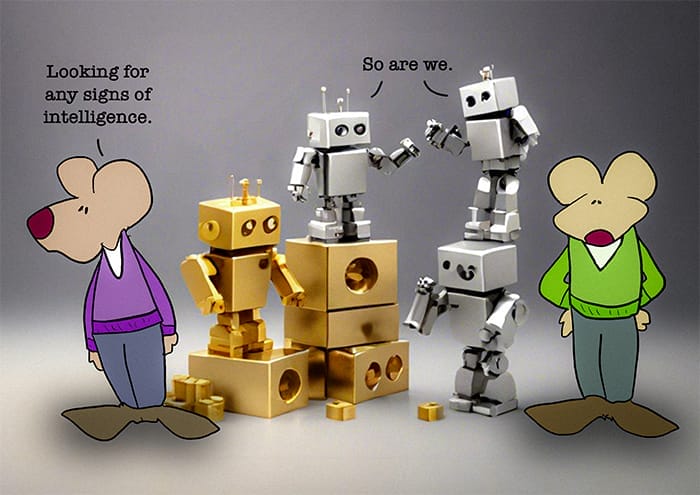Bard. ChatGPT. Bing. And the idiotic Grok.
The game-changing release of these AI platforms has everyone talking, and worrying.
One of the big questions (of many) is how generative AI will change the way we work. With every new technology, there are disruptions to the job market, but something feels different about ChatGPT and similar programs like Google Bard and Microsoft Bing AI.
So. Just to be clear. Generative AI is a new type of artificial intelligence (AI) that uses algorithms to generate original text, images, software code, and just about anything else from a simple text prompt. All of these AI applications have been “trained” on massive amounts of data and can produce human-quality content in seconds. You ask the question. They answer.
Getting back to the topic at hand.
How will this change the way we work? What jobs will be done away with? Who will this effect?
According to a 2023 report from Goldman Sachs: “The labor markets in both the United States and Europe could “face significant disruption” if generative AI lives up to the hype. As much as a quarter of current jobs could be fully replaced by AI, and two-thirds of all jobs — or 300 million jobs — will be impacted by AI automation in ways both large and small.”
Gulp.
But this won’t happen overnight. I’ll tell you that much right now. Changes in the job market move slowly.
Recent studies, or “assessments” of the workplace, have shown that the advent of AI has shifted the focus from blue-collar to white-collar workers. So, this will be less about robots doing blue-collar jobs and more about AI and algorithms replacing those white-collar desk jobs.
Here is a list of eight jobs that AI experts predict will be the most vulnerable to AI automation. And also, a list of eight jobs that are far harder to replace with super smart machines. At least. For now.
The jobs that will be replaced by AI?
1. Content Marketers
2. Beat Journalists
3. Graphic Artists
4. Data Analysts
5. Programmers and Coders
6. Lawyers
7. Warehouse Workers
8. Radiologists and Medical Diagnosticians
And, the jobs that will be least threatened by AI?
1. Skilled Tradespeople
2. Construction
3. Food Preparation and Serving
4. Psychology and Counseling
5. Elementary School Teachers
6. Professional Athletes and Coaches
7. Drivers (For Now)
8. Truly Creative Thinkers
Some AI experts think we should be less worried about AI taking our jobs than taking our lives. Another gulp.
Other experts say that AI won’t replace humans. But. People with AI will replace people without AI.
My take on this is in the short term (especially for those of us who are no longer in the working sector)? We don’t have to worry too much about the AI monster showing up on our porches and breaking down the front door to take us away to the fiery volcano top.
On the other hand, we better familiarize ourselves with AI and the impact it is having on the world around us. We better learn how to use it. Just like we had to learn email, internet browsers, paying bills online, automated tellers, self-serve gas pumps, microwave ovens, and TV dinners.
Society changes. How things are done changes. The horse and buggy faded away. So did blood-letting. So did reading by candlelight. Things change. And many times, it is for the better. And sometimes, not. We mostly have to be ready to adapt and change with it.
There’s no avoiding this in our lives.
Change is the one constant in the Universe.
“””””””””””””””
“The secret of change is to focus all of your energy, not on fighting the old, but on building the new.” – Socrates
“””””””””””””””
“The art of life is a constant readjustment to our surroundings.” – Kakuzo Okakura
“””””””””””””””
“Progress is impossible without change, and those who cannot change their minds cannot change anything.” – George Bernard Shaw
“””””””””””””””
It is artificial. Not a sweetener. But intelligence.
